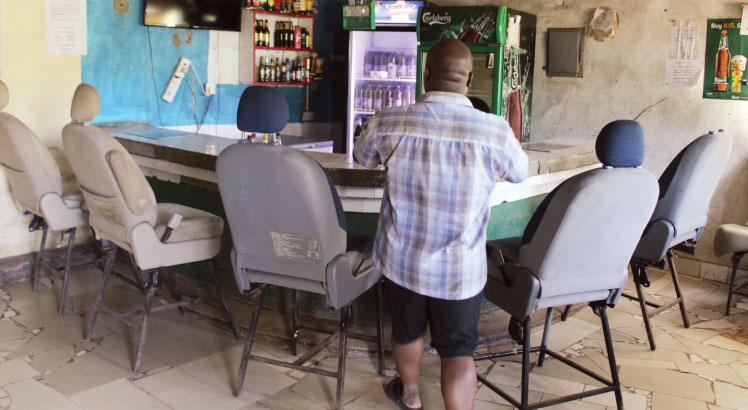Gays feel sidelined in social circles
It is Friday evening and despite being a regular club-goer and party fanatic, Dorian Moyo cuts a lonely figure in his house.
As he sips his beer, he stares at the walls. Due to his self-imposed confinement, the glass of beer in his hand does not feel good to hold. The thoughts dominating his mind are about his peers partying the weekend hours away in a joint, just a block away from his home.
Much as he wants to join them, the experience he had last time still haunts him. The 29-year-old was a victim of homophobic attacks as a gay.
“I love having fun. With my group of friends we love going out whether it is for a drink, to watch games or movies. But depending on the type of audience that we meet sometimes, I have been a target of abuse. Sometimes it even gets physical,” he said.
Due to such kind of treatment, the Area 47 resident in Lilongwe has opted to stay away from entertainment places.
Moyo said: “One day some guy came over to where we were seated and pushed me. He said we should take our gay behaviour away because he was disgusted by looking at us. Another time some lady threatened to hit us with her car at the car park when we made our way out of the bar.”

He said sometimes the security personnel in clubs have offered them protection, but the emotional hurt and physical threat is just too much to sustain.
“Sometimes we are forced to say few hurtful words back, but what if we will be hurt one day? It makes us think twice about going out. It is for our own safety,” he said.
The story of Moyo is one of the many experiences that the lesbian, gay, bisexual and transgender, queer and intersex (LGBTQI) people face in the social and entertainment realm.
According to a 2018 report on violence and discrimination against LGBTQI people in Malawi by the Human Rights Watch, the challenges they face have been worsened by the lack of clarity and divergent opinions regarding the legality of moratorium on arrests and prosecutions for consensual homosexual acts issued in 2012 by the government.
In 2016, a High Court of Malawi order suspended the moratorium pending judicial review by the Constitutional Court.
“This uncertainty seemed to have encouraged private individuals to attack LGBTQI people with impunity,” suggests the Human Rights Watch.
Thirty-year-old Pemphero Banda, who works in Zomba, said though he wears a brave face amid abuse, it hurts to be the topic of hate talk and social stigma.
He said: “There are times when you can go out and people you know don’t even want to associate with you. I have lost friendships because of my sexual orientation. In the end you just have to focus on yourself, but it is not easy.”
Club 24/7 owner MacDonald Moyo said they have encountered such incidents at the joint, but management has always taken a hard and definitive action on the perpetrators.
He said: “There is no point where one should feel more superior to the other depending on such personal choices. Our primary goal is to offer entertainment to everyone regardless of their sexual choices.”
On the other hand, Scalla’s Café director Jason Joshi said they have never received any formal complaint bordering on abuse related to sexual orientation.
“We are a business which is open to anyone regardless of who or what they are. Our duty is to make sure that everyone who patronises our place is safe and protected from any harm. It is a public place without any limitations,” he said.
Social Justice Foundation executive director George Hopkins Kachimanga, said human rights are universal regardless of one’s status be it race, culture, religion or sexual orientation. He said social exclusion is a violation of one’s human rights.
He said: “We receive reports on social exclusion frequently and they are now escalating. But the entertainment places are social spaces where everyone needs to feel safe and protected.
“Club owners have the responsibility that each customer enjoys their space without stigma or discrimination of any form.”
Centre for the Development of People executive director Gift Trapence said they have also received several reports on abuse that takes place in the social and entertainment realm.
He said they have referred such cases to the Malawi Human Rights Commision, Legal Aid Bureau and the police for necessary support.
“Business is about respecting the rights of your customers. Every customer matters regardless of their perceived sexual orientation,” said Trapence.





